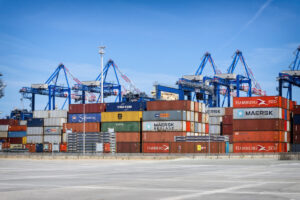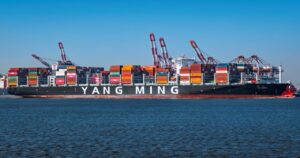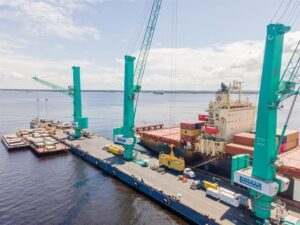Major ports in India will shift from state-run operations to a new Public Private Partnership model, its Finance Minister has announced.
On 2 February Nirmala Sitharaman, in the digital Union Budget for 2021/22, the Union Minister of Finance and Corporate Affairs stated seven projects worth over Rs 2,000 crore will be offered to major ports.
The shift to private operations will promote flagging of merchant ships in India, Smt. Sitharaman said. The investment will also enable greater training and employment opportunities for youth workers, generating around 150,000 jobs to the national economy.
The government will also launch a subsidy support scheme of Rs 1,624 crore in global tenders floated by Ministries and CPSEs over 5 years to Indian shipping companies.
Smt. Sitharaman proposed also to double the ship recycling capacity of around 4.5 Million Light Displacement Tonne (LDT) by 2024 – making a greater effort to bring more ships to India from Europe and Japan.
Around 90 ships recycling yards at Alang in Gujarat have already achieved Hong Kong International convention (HKC) compliant certificates.
12 major ports are currently controlled by the central Indian Government: Deendayal (erstwhile Kandla), Mumbai, JNPT, Mormugao, New Mangalore, Cochin, Chennai, Kamarajar (earlier Ennore), V. O. Chidambaranar, Visakhapatnam, Paradip, and Kolkata (including Haldia) under the control of the Centre.
These major ports handle about 60% of the country’s total cargo traffic.








